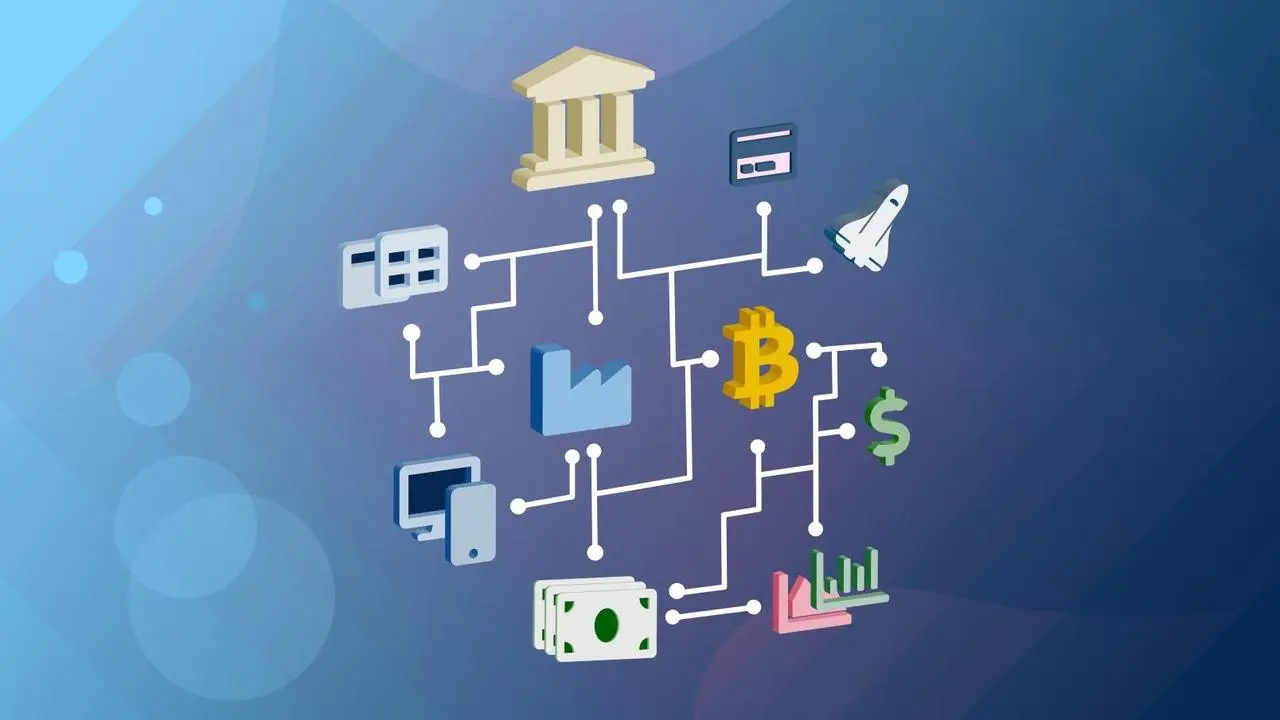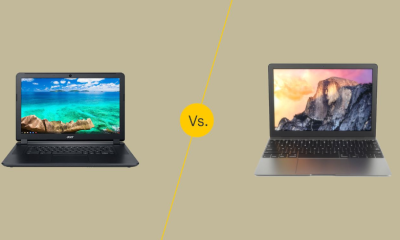Business
DeFi Explained: Decentralized Finance and Its Applications

Discover the world of DeFi: a financial ecosystem without intermediaries, operated through blockchain and smart contracts. Decentralized governance guarantees security and inclusivity, eliminating single points of failure. Access financial services directly, expand inclusivity, and reduce costs. Utilize smart contracts for lending, borrowing, and decentralized exchanges. Yield farming optimizes returns, while staking secures networks. Watch for exponential growth, influenced by investments and regulations. Governments aim for governance frameworks balancing innovation and protection. Explore how DeFi revolutionizes finance and fosters innovation.
The Basics of DeFi
With DeFi, you can participate in financial activities without relying on traditional intermediaries like banks or brokerage firms. Decentralized Finance (DeFi) operates through blockchain technology, enabling direct peer-to-peer transactions securely and transparently.
At the core of DeFi are smart contracts, self-executing contracts with the terms of the agreement directly written into code. These smart contracts automate processes, removing the need for intermediaries and reducing the potential for human error or manipulation.
Defi protocols are the set of rules and standards that govern DeFi platforms, ensuring the smooth functioning of decentralized financial activities. These protocols dictate how different tasks are executed, such as lending, borrowing, or trading digital assets.
Governance within DeFi is often decentralized, with participants holding governance tokens that allow them to vote on proposals and changes within the ecosystem.
Furthermore, the rise of prop trading white label solutions in DeFi offers innovative ways to create bespoke trading platforms, blending traditional and decentralized financial approaches seamlessly.
Advantages of Decentralization
Decentralization in DeFi offers heightened security by eliminating single points of failure, making it less vulnerable to hacks and manipulation.
Additionally, this model promotes financial inclusion by providing access to financial services for individuals who are unable to participate in traditional systems.
The advantages of decentralization lie in its ability to create a more resilient and inclusive financial ecosystem.
Security in DeFi
By distributing control across a network of participants, decentralized finance (DeFi) inherently enhances security measures, offering a robust shield against single points of failure. Smart contract audits, a fundamental aspect of DeFi security, guarantee the code governing financial transactions is free of vulnerabilities. These audits are essential in identifying and rectifying potential weaknesses that could be exploited by malicious actors.
In addition to smart contract audits, effective risk management strategies play a pivotal role in fortifying security within the DeFi ecosystem. Implementing measures such as decentralized governance models, multi-signature wallets, and insurance protocols can help mitigate risks associated with potential breaches or hacks.
Financial Inclusion
Distributing control and enhancing security measures in decentralized finance not only fortify against vulnerabilities but also pave the way for greater financial inclusion through the decentralization of access and opportunities. Blockchain technology, the backbone of DeFi, has the potential to revolutionize financial inclusion by enabling direct access to financial services for underbanked populations.
Microfinance initiatives powered by blockchain can provide small loans to individuals who’ve been excluded from traditional banking systems, fostering entrepreneurship and economic growth.
Moreover, peer-to-peer lending platforms within decentralized finance offer a direct channel for capital flow between individuals, eliminating the need for intermediaries and reducing costs. This direct interaction enhances financial inclusion by allowing individuals to lend and borrow funds without the constraints imposed by traditional financial institutions.
DeFi Lending and Borrowing
Lending and borrowing in DeFi platforms are vital components that facilitate the efficient allocation of capital within decentralized financial ecosystems. Smart contracts play an essential role in automating the lending and borrowing processes, enabling users to interact directly with the protocol without the need for intermediaries. These contracts execute predefined actions once specific conditions are met, ensuring the security and transparency of transactions.
Risk management is a fundamental aspect of DeFi lending and borrowing. Users must assess the risk associated with each transaction, including factors like collateral requirements, interest rates, and market volatility. In DeFi, risk management strategies are often embedded within the smart contracts themselves, setting parameters for acceptable risk levels and triggering actions in case of default.
Additionally, users can diversify their investments across different lending protocols to mitigate risk exposure. By leveraging the power of smart contracts and implementing robust risk management practices, DeFi lending and borrowing platforms offer users the opportunity to access capital in a decentralized, efficient, and secure manner.
Decentralized Exchanges (DEX)
Decentralized Exchanges (DEX) revolutionize traditional trading by enabling direct peer-to-peer transactions without the need for intermediaries. In DEX platforms, users can trade cryptocurrencies directly with each other, facilitating decentralized trading.
One of the key features of DEX is the use of liquidity pools, where users contribute their tokens to provide liquidity for trading pairs. These liquidity pools enable automated market making, allowing for token swaps without relying on a central order book.
DEX platforms offer users greater control over their assets and eliminate the need to trust a third party with custody. By connecting buyers and sellers directly through smart contracts, DEX fosters a secure and transparent trading environment.
Decentralized exchanges play an essential role in the DeFi ecosystem by promoting peer-to-peer transactions and enhancing liquidity in the market. With the rise of decentralized finance, DEX platforms continue to gain popularity as they provide a decentralized alternative to traditional centralized exchanges.
Yield Farming and Staking
You’re about to explore the fundamental concepts of yield farming and the advantages of staking in the domain of decentralized finance. Understanding the basics of yield farming will shed light on how users can maximize returns by leveraging various DeFi protocols.
Additionally, delving into the benefits of staking will reveal how participants can earn rewards and secure blockchain networks by locking up their assets.
Yield Farming Basics
For those delving into the world of DeFi, understanding the basics of yield farming and staking is essential for maximizing potential returns and actively participating in decentralized finance ecosystems. Yield farming involves depositing cryptocurrency into liquidity pools to earn rewards in the form of interest or additional tokens.
However, it’s important to take into account risk management strategies when participating in yield farming, as these rewards often come with varying levels of risk associated with impermanent loss and smart contract vulnerabilities.
Liquidity pools are at the core of yield farming, enabling users to provide liquidity to decentralized exchanges and DeFi platforms. By supplying assets to these pools, individuals earn a share of the trading fees generated on the platform.
This process involves staking your assets in these pools, which not only helps facilitate the trading process but also rewards participants with additional tokens or interest. Understanding how liquidity pools function and the associated risks is vital for successful yield farming endeavors in the DeFi space.
Staking Benefits
Engaging in staking within DeFi ecosystems offers investors the opportunity to earn passive income and actively participate in network validation processes. By staking your tokens, you contribute to the security and efficiency of the blockchain network while being rewarded with staking rewards. These rewards are usually a percentage of the staked amount and are distributed regularly, providing you with a steady stream of passive income.
When considering staking benefits, it’s important to understand the token economics of the project you’re staking in. Tokenomics play a significant role in determining the staking rewards, lock-up periods, and overall risk involved. Proper risk management is essential when staking, as different projects carry varying levels of risk depending on factors like the project’s liquidity, governance structure, and market demand.
Diversifying your staking portfolio and staying informed about the projects you’re staking in can help mitigate risks and maximize your staking rewards effectively.
Future Trends in DeFi
Emerging as a significant force in the financial sector, DeFi is poised to witness a surge in adoption and innovation in the coming years. The future trends in DeFi are likely to be shaped by two key factors: DeFi investment and DeFi regulation.
DeFi investment is anticipated to grow exponentially as more traditional financial institutions and retail investors realize the potential for high returns in the DeFi space. This influx of capital is expected to drive further development of decentralized applications and infrastructure, leading to a more robust and diverse DeFi ecosystem.
On the regulatory front, governments and regulatory bodies are increasingly focusing on creating frameworks to govern DeFi activities. While regulation can bring stability and legitimacy to the DeFi sector, there’s also a delicate balance required to avoid stifling innovation.
Striking the right balance between fostering innovation and protecting investors will be essential for the sustainable growth of DeFi in the future.
Conclusion
To sum up, decentralized finance (DeFi) offers a revolutionary way to access financial services without relying on traditional intermediaries. The advantages of decentralization, such as increased security and transparency, make DeFi a promising alternative to centralized systems.
From lending and borrowing to decentralized exchanges and yield farming, the applications of DeFi continue to evolve.
As we look towards the future, the potential for growth and innovation in the DeFi space is vast, promising a new era of financial inclusivity and empowerment.
-

 Business5 months ago
Business5 months agoSepatuindonesia.com | Best Online Store in Indonesia
-

 Technology3 weeks ago
Technology3 weeks agoTop High Paying Affiliate Programs
-

 Tech5 months ago
Tech5 months agoAutomating Your Window Treatments: The Advantages of Auto Blinds
-

 Tech5 months ago
Tech5 months agoUnleash Your Potential: How Mecha Headsets Improve Productivity and Focus
-

 Instagram2 years ago
Instagram2 years agoFree Instagram Follower Without Login
-

 Reviews11 months ago
Reviews11 months agoAndroid Laptop vs. Chromebook: Which one is better?
-

 Instagram2 years ago
Instagram2 years agoIGTOK – Get Instagram Followers, Likes & Comments
-

 Business8 months ago
Business8 months agoFollow These 5 Tips To Avail Personal Loans At Lower Interest Rates




















